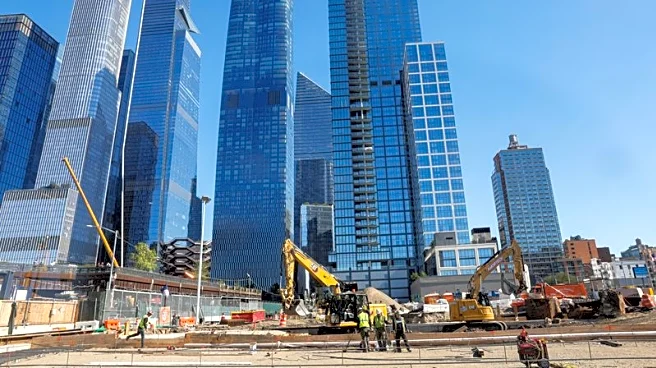What's Happening?
Nepal experienced violent protests following a government-imposed ban on social media apps, including WhatsApp, Facebook, and Instagram. The ban, which affected 26 apps, was part of a directive requiring platforms to register with the Ministry of Communication and Information Technology. The protests, known as the 'Gen Z protests,' saw widespread participation from young people, resulting in at least 19 deaths and hundreds of injuries. The government has since reversed the ban, restoring social media access. The protests were fueled by accusations of government corruption and nepotism, leading to the resignation of Home Minister Ramesh Lekhak.
Why It's Important?
The social media ban in Nepal highlights the critical role of digital platforms in modern communication and political expression. The government's attempt to control social media access sparked significant unrest, demonstrating the power of these platforms in mobilizing public opinion and protest. The reversal of the ban underscores the challenges governments face in regulating digital spaces without infringing on freedom of expression. The situation in Nepal may influence other countries considering similar measures, emphasizing the need for balanced approaches to digital regulation that respect civil liberties.
What's Next?
The Nepalese government will likely face continued pressure to address the underlying issues of corruption and nepotism that fueled the protests. The international community may increase scrutiny on Nepal's handling of digital rights and political dissent. The protests could lead to broader discussions on the role of social media in governance and the importance of safeguarding freedom of expression. As the government navigates these challenges, it may seek to implement reforms to restore public trust and stability.










